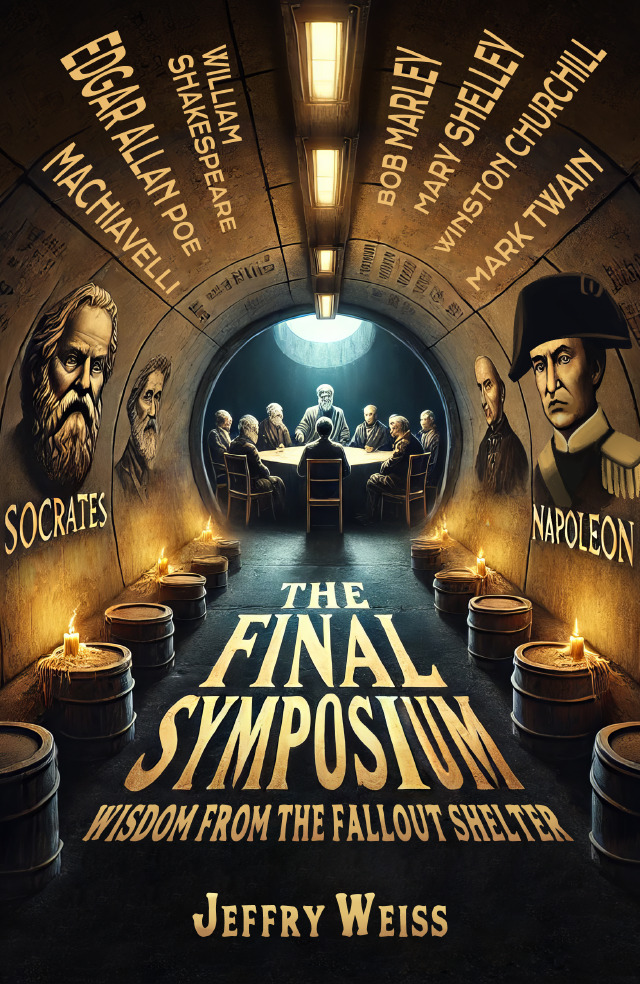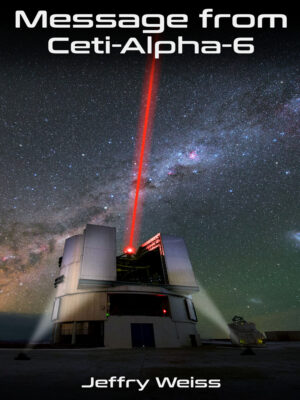The Final Symposium: wisdom from the fallout shelter “(a stage play in three acts, 107 pages, 26,000 words), is a post-apocalyptic existential exploration that blends philosophy, survival, and human resilience. Set in the aftermath of global devastation, it follows a group of visionaries, philosophers, and historical luminaries who take refuge in an underground fallout shelter, engaging in Socratic dialogues as they attempt to decipher the failures of the past and determine if civilization can, or should, rise again.
The bunker, once a simple storm shelter, has become humanity’s last refuge—stocked with books spanning three millennia, salvaged remnants of the world before, and the makeshift comforts of survival. Eighteen men and women, some of history’s most renowned thinkers, endure the tension of close quarters, venturing into the radiation-scorched wasteland only when necessary—to scavenge supplies, maintain the shelter’s failing air and water filtration system, or keep the solar panels operational under the relentless blanket of nuclear ash.
Above ground, the world is dead—the final result of climate collapse, nuclear warfare, and autonomous AI weaponry that continued their directive long after human governments fell. What remains is a planet stripped of life, where scavengers, acid rain, and perpetual winter rule the land. The bunker dwellers are the last survivors of a world that ignored its warnings, now left to grapple with the ultimate questions of ethics, leadership, and survival.
At the heart of the novel is a series of philosophical debates—as tensions rise and resources dwindle, the survivors must decide: Is humanity worth rebuilding? If so, how? With histories of war, greed, and negligence burned into their memories, they must confront the most pressing question of all: If given a second chance, will human nature ever change?
With its blend of philosophical depth, dystopian world-building, and gripping survivalist tension, The Final Symposium will appeal to readers of Cormac McCarthy’s The Road, Emily St. John Mandel’s Station Eleven, and Walter M. Miller Jr.’s A Canticle for Leibowitz.





Reviews
There are no reviews yet.